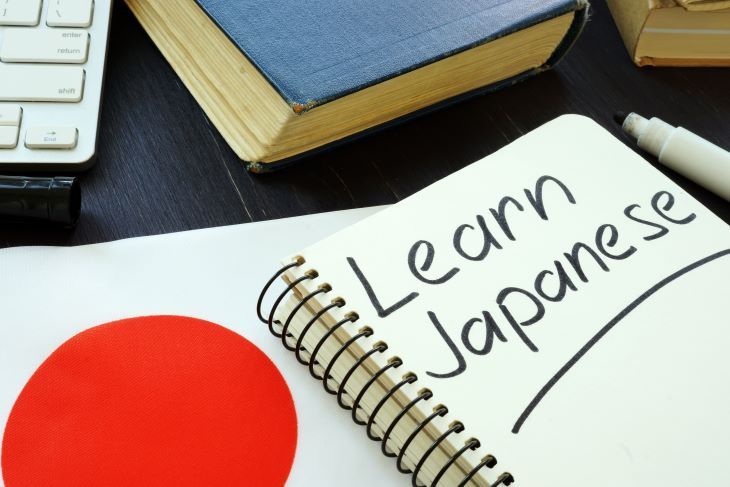The Japanese Language and Japanese Language Courses―Those Who Want to Master Japanese Must See!

1. Characteristics of the Japanese Language
Increased number of foreigners have been studying Japanese recently. Now in Japan, we see many foreigners speaking surprisingly fluent Japanese.
Foreigners often feel Japanese is difficult as many Japanese find it hard to understand English. Especially, Japanese English created in Japan such as "toire" and "arubaito" sometimes confuses foreigners, making the Japanese language difficult for them.
Japanese uses kanji, hiragana, katakana and also the alphabet, while English uses the alphabet only, and Chinese uses two types of kanji called simplified Chinese and traditional Chinese. Japanese people can understand the meaning of kanjis just looking at the structure of them, however, the Japanese language seems to be difficult for people accustomed to English, which consists of the alphabet only.
In addition, English is an SVO language whose word order is subject, verb and object, whereas Japanese is an SOV language whose word order is subject, object and verb, like "Watasiha gohanwo tabeta. (I rice ate.)" Lots of people may get perplexed by these fundamental differences at the beginning, but first things first, let's understand the characteristics of the Japanese language and get used to it little by little.
・Only five vowels
There are only five vowels in Japanese: a, i, u, e and o.
・Kanji
Kanji, which was created in ancient China, is used in Japan, Korea and Taiwan today.
Although using kanji is a matter of course for Japanese, it can be said that it is very bewildering characters for foreigners.
Kanji has two ways of reading: Chinese reading and Japanese reading. This means there are many kanjis having more than one way of reading, which can be a huge hurdle for people who are not used to it.
Even if it is the first time to see that kanji, Japanese can somehow extrapolate its reading and meaning from its structure. On the other hand, when foreigners who grew up in a kanji-free country start studying it from scratch, it seems they find it very difficult to learn the meaning and writing of it.
・Hiragana
Hiragana was created by simplifying "Sogana", which was composed of cursive style kanji characters, and uses 48 characters: 47 characters of iroha and "n".
It is difficult to understand a language perfectly, no matter what it is, however, Japanese is a language fairly easy to study when it comes to making sentences for daily conversation, reading and writing. As such, we would like you not to give up and continue studying tenaciously.
・Existence of honorific, humble and polite language
Japanese includes three types of honorifics: honorific language, which is used when you want to honor superiors; humble language, which is used when you humble yourself and; polite language, which uses "desu" and "masu" at the end of the sentence. Even Japanese people misuse and confuse these languages due to incorrect memorization, suggesting that it is difficult traits of the Japanese language.

2. How to Learn Japanese
Then, how do those Japanese-speaking foreigners study? If you have Japanese or friends who can speak Japanese around you, they can teach it to you, but the truth is, a lot of foreigners seem to learn Japanese daily conversation through studying in Japanese language courses.
What exactly the ways to learn Japanese?
Then, how do those Japanese-speaking foreigners study? If you have Japanese or friends who can speak Japanese around you, they can teach it to you, but the truth is, a lot of foreigners seem to learn Japanese daily conversation through studying in Japanese language courses.
What exactly the ways to learn Japanese?
・Taking a Japanese language course
Many Japanese language courses have various plans in place from beginner to advanced courses. As eas-to-understand courses based on a textbook are provided by instructors, we suggest you should take a course suitable for your Japanese level.
・Homestay in Japan
There are many host families in Japan that are willing to accommodate foreign students.
Several years of stay in Japan will give you a chance to master Japanese as you experience Japanese culture. Depending on where you stay, you can study the region's dialect as well as standard Japanese, because there are many dialects in Japan.
・Seeing Japanese movies etc.
It is crucial to be exposed to Japanese as much as possible in order to learn it. Not to mention Japanese movies, more people enjoy studying with Japanese anime and manga with fun.
・Using Apps
Apps by which you can study hiragana and Japanese words have been brought out. Since it allows you to study anywhere, anytime in your spare time, it would be useful if you install them.
There are many ways to study Japanese. Let's get hold of it firmly with a study method congenial to you.
3. Introduction of Japanese Courses
Shown below is introduction of Japanese language courses for foreigners available in Japan.
・Meguro UNESCO Association
UNECO Japanese Language Class, cosponsored by Meguro Ward, offers a-year-and-a-half group lessons for each level. With careful lessons given by trained members, you can acquire the basics of the daily Japanese language.
【Reference】https://meguro-unesco.info/actibity/japanese.html
・OHANA BLOOM
OHANA BLOOM in Ikebukuro, Toyoshima Ward holds small Japanese language classes for foreigners who came to Japan to work or on a working holiday. Since they also have social gatherings with Japanese, it is recommended not only to those who want to learn business Japanese but also want to make Japanese friends and master natural speaking as well as Japanese people.
【Reference】https://www.ohanabloom.co.jp/
・Sakura-Kai
Founded in 1983 and located in Minato Ward, Tokyo Metropolitan area, Sakura-Kai has supported Japanese language learning with the sponsorship of the Japanese language support volunteer group. Sakura-Kai has three classes at different levels: Beginner 1, Beginner 2, Intermediate and Intermediate Conversation. Thus, you can go up those levels step by step according to your ability.
【Reference】http://sakurakai.org/index.html
・Machida International Center
MIC is proactively engaged in activities to deepen friendship with foreign Machida residents. As part of its project to support foreigners, it holds Japanese language classes. Volunteers will teach Japanese to you in a small group lesson.
【Reference】https://www.machida-kokusai.jp/japanese-classes
・Chuo Cultural and International Exchange Association
CCIEA holds Japanese language classes for foreigners who live or commute to a company or school in Chuo Ward. In addition to holding Japanese classes given by volunteer instructors, it also supports holding Japanese classes sponsored by volunteers in order to respond to increased applicants for the Japanese classes.
【Reference】https://www.chuo-ci.jp/japanese/
Many other Japanese courses are also available. Take a course that has a good access from where you live or that is optimal for your Japanese skills.
4. Message
This time, we introduced in detail characteristics of the Japanese language and Japanese language courses useful to foreigners who are thinking about studying or who have been studying Japanese.
In Japanese, there are many unique expressions hard to translate into English literally. You cannot understand the meaning of words like "yoroshikuonegaishimasu" or "osoreirimasu" until you actually live in Japan or spend time with Japanese. So, we hope you come in touch with Japanese people and listen to them actually use those words to acquire them. It would be our pleasure if the contents of this issue could help you master Japanese.
















